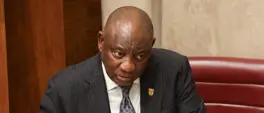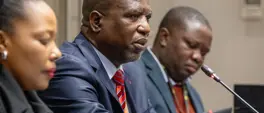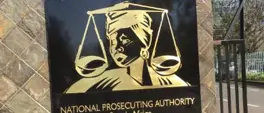Hlophe in court bid to halt Parliament's impeachment vote against him
Lindsay Dentlinger
20 February 2024 | 5:19Western Cape High Court Judge President John Hlophe is challenging the process Parliament has followed and wants it to stay the vote until the Constitutional Court has reviewed its procedures.
CAPE TOWN - Western Cape High Court Judge President John Hlophe will be before his own court on Tuesday for an interdict to stop Parliament from holding an impeachment vote against him on Wednesday.
Hlophe said his hand had been forced by Speaker Nosiviwe Mapisa-Nqakula.
He's challenging the process Parliament has followed and wants it to stay the vote until the Constitutional Court has reviewed its procedures.
The Judicial Service Commission (JSC) recommended Hlophe’s removal from the bench in 2021 over a 2008 complaint from two Constitutional Court judges that he had tried to influence them in a case involving former President Jacob Zuma.
In his application to the Western Cape High Court, Judge Hlophe said if a temporary interdict was not granted against the National Assembly and the impeachment vote went ahead, irrespective of the result, it would establish a precedence for the removal of judges that does not accord with the Constitution.
Two-thirds of members would have to vote in favour of the recommendation for the impeachment to proceed.
While the Constitutional Court has previously ruled on the need for Parliament to have rules that guide the removal of a president and a head of a Chapter Nine institution, this has not been the case for a judge.
Wednesday's impeachment vote against Hlophe and retired Gauteng judge, Nkola Motata, is the first of its kind.
Hlophe contends that without the right to be heard by Parliament, the legislature is accepting a misconduct finding against him without considering evidence of alleged bribery in the JSC reaching such a decision.
He further argues that if Parliament does not conduct its own, fair and transparent process, it's essentially bound by the JSC's finding, even if it’s wrongful.
Hlophe said that given similar challenges in the past, his Constitutional Court case had a reasonable prospect of success and Parliament should hold off on its impeachment vote until then.
Get the whole picture 💡
Take a look at the topic timeline for all related articles.












